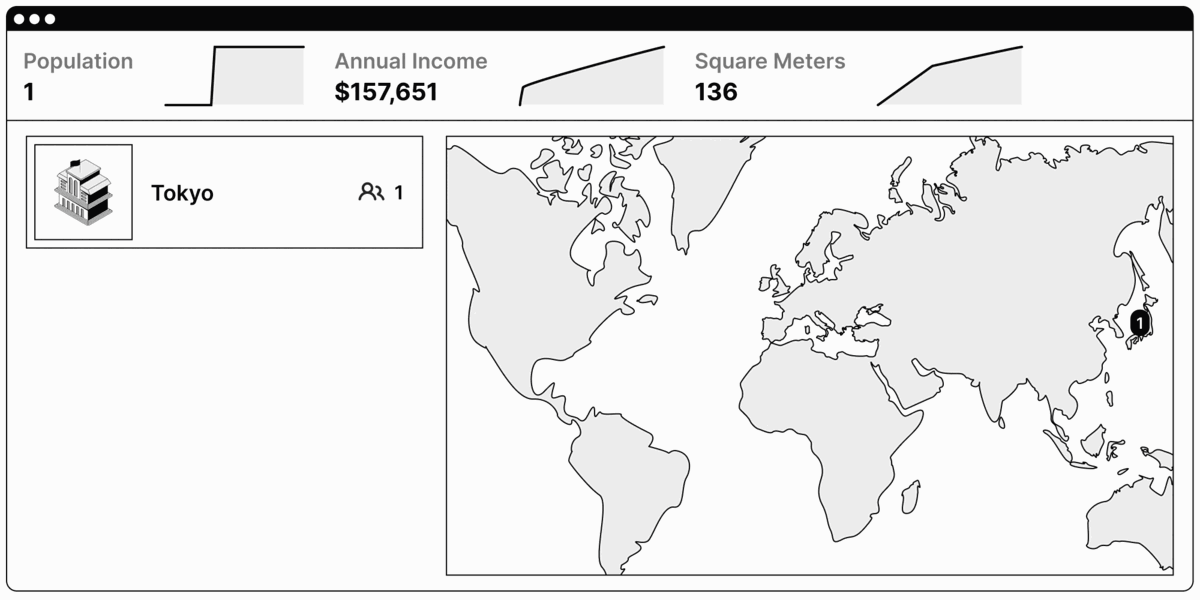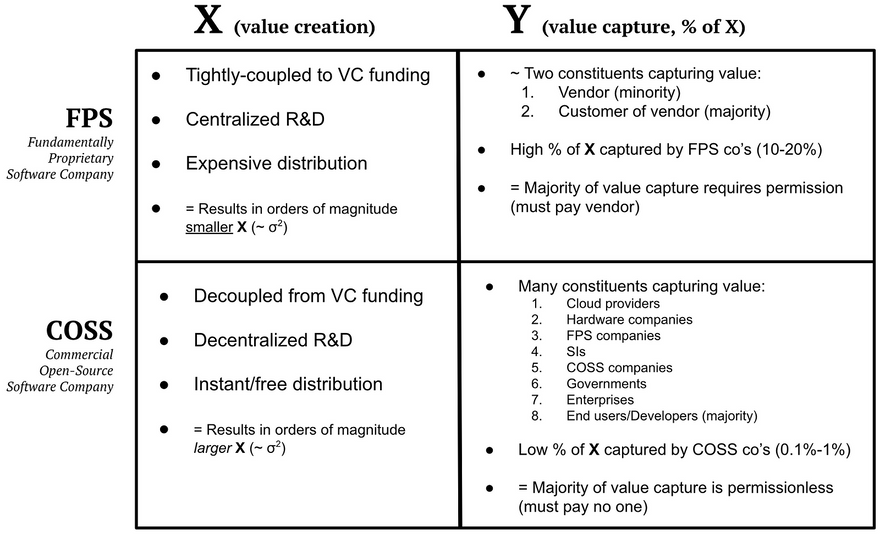Age of Coordination
Preamble: This is a meandering piece! It's a mashup of ideas revolving around interoperability that will be a lot easier to understand if you've already read Web of the People and Assembling Community OS.
In his article “Memex is already here, it’s just not evenly distributed”, Filip Hráček writes:
Here’s the thing. If I’m being honest, most of my experiments with the different memex descendants mentioned above just kind of faded after a few weeks or months. And the reason is not just habit. If they were such a huge boon to my productivity, I’d change my habit the same way I changed it for better IDEs, better social media consumption strategies, or better terminal defaults.
No, the reason those shiny new apps don’t stick is interoperability.
This is where the Noosphere approach of being protocol-first is fundamentally different. Protocols are interoperability frameworks, and we are witnessing a sea-change in protocol convergence for the internet's communication infrastructure.
Stefan Lesser chimed in on this proclamation:
I’m glad that protocols are exciting again, which just means agreeing on stuff is exciting again.
But then agreeing on stuff comes with consequences. It means limiting your freedom. You can’t just do what you want. You can’t just try something new. You can’t just go it alone.
A lot of technology we still use today came from agreeing on stuff. But then agreeing on stuff fell out of favor and companies pushed hard to be first, best, or cheapest. And that brought us a lot of other technology, often deteriorating and short-lived.
I’m unconvinced that we suddenly changed our collective mind and worry that many people still only like agreeing on stuff as long as it means “others agree with me”.
We're now living in the mess of what everyone just doing whatever they want to do gets us. The past two decades have been the age of disruption; move fast and externalize the costs.
The Silicon Valley VC mindset doesn't understand collectivism. Rather than solving problems in the best way possible, the disrupters relentlessly race to be first to market with a minimum-viable solution that allows them to monopolize a problem space for their own enrichment. It's all about value capture for an elite few, instead of value creation for the global commons.
In the collective model of open source development, value creation/capture dynamics are fundamentally different:
Open software generates greater value overall, to the benefit of more stakeholders. Protocol development is a radical form of openness practice, concerning itself first and foremost with wide reaching coordination challenges as opposed to technical problem solving for narrow boundary goals.
Belly of the Beast
Software has indeed eaten the world, but we've been consumed by the wrong type of software leviathan. Instead of building our digital frontier on the back of a benevolent world turtle in a symbiotic co-existence, we're trapped in the belly of a domineering cloud-whale whose primary function is control rather than autonomy.
In the closed-cloud paradigm, it's only the rent-seeking infrastructure landlords who get to do what they want, while the rest of us have to build according to their strict specifications. That's not an environment conducive to emergent co-evolution.
According to Joseph Campbell's timeless monomyth of a Hero's journey, our current state of entrapment is merely the end of Act 1:
The belly of the whale represents the final separation from the hero's known world and self. By entering this stage, the person shows a willingness to undergo a metamorphosis.
“The idea that the passage of the magical threshold is a transit into a sphere of rebirth is symbolized in the worldwide womb image of the belly of the whale. The hero, instead of conquering or conciliating the power of the threshold, is swallowed into the unknown and would appear to have died.
...
This popular motif gives emphasis to the lesson that the passage of the threshold is a form of self-annihilation. ... Instead of passing outward, beyond the confines of the visible world, the hero goes inward, to be born again”
Thus the stage is set for a reclamation of our digital selves. It's time for Act 2!
Federated Coordi-Nations
In his book The Network State, Balaji Srinivasan posits that a startup society – the initiating precursor of a network state – can begin with the formation of any online community, like a Facebook Group or a Discord server.

Balaji can be faulted for many things, but I can only commend him for trying to imagine what greenfield state building might look like in a status quo that considers this to be impossible.
By default I don’t trust Balaji's personal motivations, on account of his billionaire status. So when he invokes ideas like collective action, rather than trying to deconstruct what he actually means, I just make note of that fact that he felt compelled to make that invocation. Even if he doesn’t fully embody the idea, he acknowledges its power.
For an in-depth critique I recommend The Blockchain Socialist's 'Overthrowing The Network State' series. Their work has recently culminated in an alternative model of the network state concept: The Rise of Coordi-Nations.
Coordi-Nations are voluntary interwoven networks of communities, with aligned values and a shared identity. They mutualise resources to redistribute them within the network to engage in collective action, through participatory governance and interdependency between nodes.
This is a remarkably fitting description of the community-owned instances that make up the fediverse.
While legacy networks like Twitter, Facebook, Reddit and Discord are startup societies of the monolithic nation-state variety, Mastodon, Firefish, Lemmy and Commune represent the new world of borderless coordi-nations, i.e. protocol-derived platforms for cooperative network states. What they lack in size they make up for in the collective power of their interoperability and common purpose.
Playing co-op games
A month after the Reddit exodus, Gizmodo boldly claimed “Reddit won”, because Reddit is still left standing. Similar stories have been written about Twitter vs Mastodon.
This type of analysis repeatedly fails to recognize two crucial factors:
Platforms die with a whimper, not a bang. Digg, the precursor to Reddit, is still around today, it's just not relevant. You can even visit MySpace right now if you'd like, but you won't. Twitter/X may still be operational, but its status as the internet's public square has long since been lost (not that it ever deserved it).
Twitter and Reddit may have only lost a few million users to Mastodon and Lemmy so far, but these are nation-sized numbers, comparable to what Scandinavia is to the United States of America. The incumbents have allowed the fediverse to reach critical mass. It's only gonna get bigger, but it already works well enough that I've no need for any other social network. It's nicer here.
Like one Lemmy user commented:
The way I see it, all of us who migrated here won. Enshittification is eventually going to kill Reddit, the only question is when.
I really do think a brain drain is happening. Occasionally looking over the fence, it appears the people still active on Reddit are a tad more complacent and nihilistic. Gone are the early movers and enthusiastic pioneers who still (or once more) believe in a Web of the People.
Mastodon, Lemmy and their many peers are all uniquely part of the same interoperable network of loosely coordinated builders, intrinsically motivated by the daily experiencing of their self-made spaces. Far better than your regular social-engagement network, the fediverse is a movement. And unlike the walled silos whose only metrics are captive users & clicks, the success of a movement is measured in its ability to inspire change and drive coordinated action.
